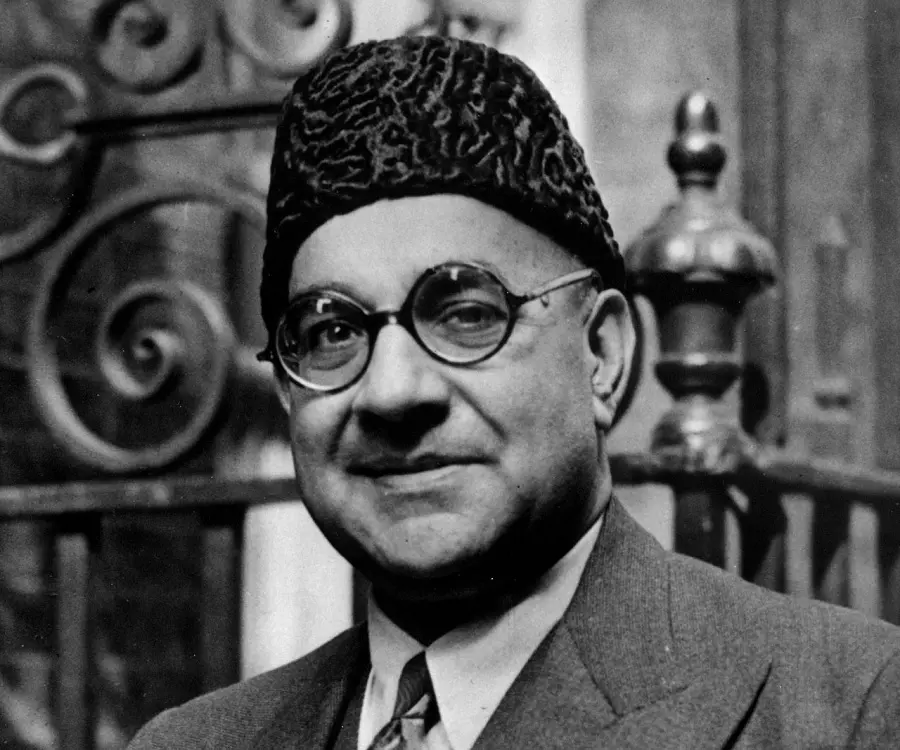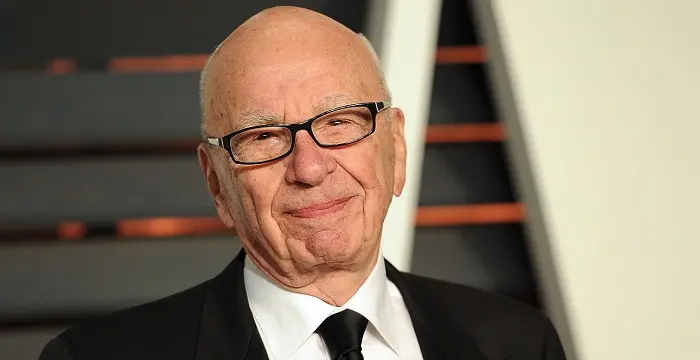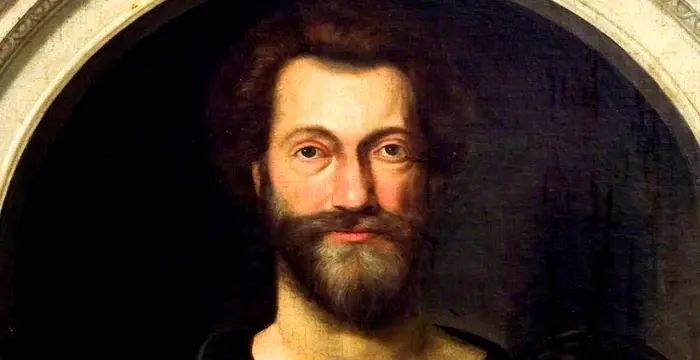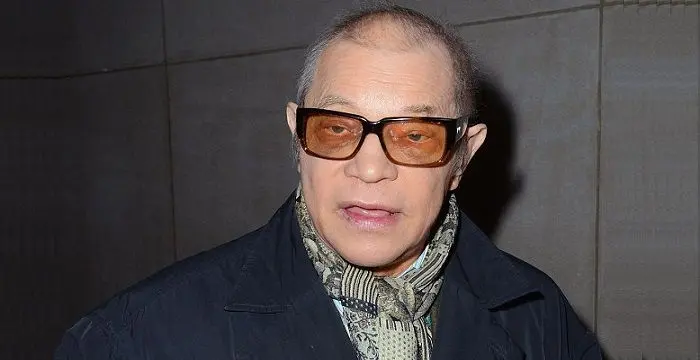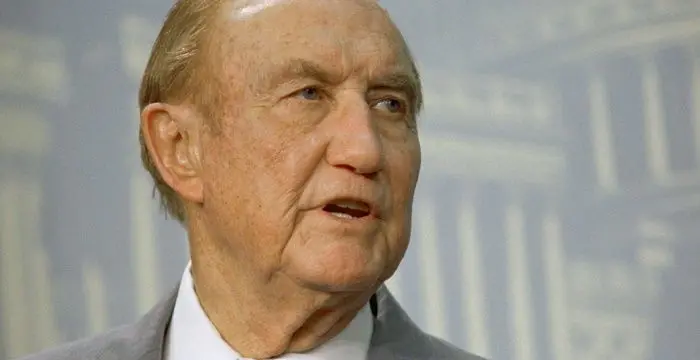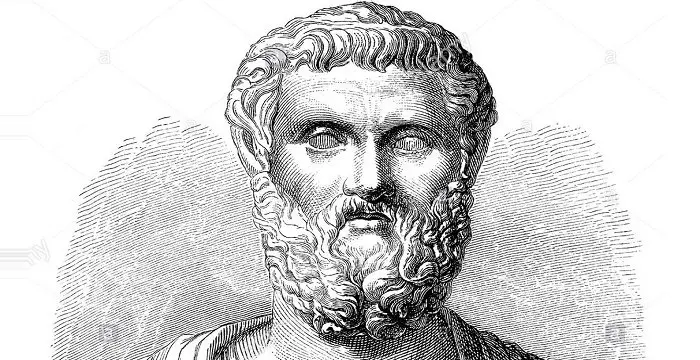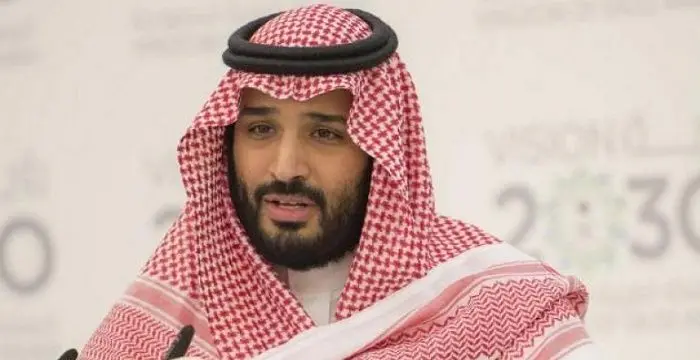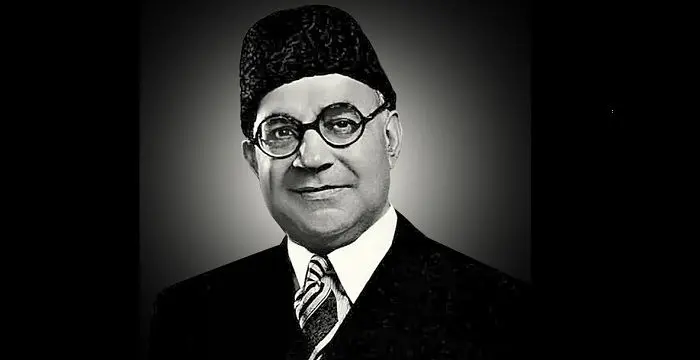
Liaquat Ali Khan - First Prime Minister of Pakistan, Timeline and Childhood
Liaquat Ali Khan's Personal Details
Liaquat Ali Khan was the first Prime Minister of Pakistan
| Information | Detail |
|---|---|
| Birthday | October 1, 1895 |
| Died on | October 17, 1951 |
| Nationality | Pakistani |
| Famous | Oxford University, Leaders, Political Leaders, Prime Ministers, First Prime Minister of Pakistan |
| Spouses | Jehangira Begum |
| Known as | Nawabzada Liaquat Ali Khan, Liaquat |
| Universities |
|
| Notable Alumnis |
|
| Cause of death |
|
| Birth Place | Karnal |
| Religion | Sunni Islam, Islam, Shia Islam |
| Gender | Male |
| Sun Sign | Libra |
| Born in | Karnal |
| Famous as | First Prime Minister of Pakistan |
| Died at Age | 56 |
Liaquat Ali Khan's photo
Who is Liaquat Ali Khan?
Liaquat Ali Khan was one of the leading Founding Fathers of modern Pakistan who served as the nation’s first prime minister. In addition, he was also the first Defence Minister of Pakistan. A lawyer by profession, he was an acclaimed political theorist who rose to political prominence as a member of the All India Muslim League, and was regarded as the right-hand man of Muhammad Ali Jinnah, the leader of the Muslim League. Born as the son of a wealthy landlord in British India, he studied law and political science at the Aligarh Muslim University (AMU) before moving to England on a scholarship to further his education in Oxford University's Exeter College. Upon his return to India he became active in national politics and joined the All India Muslim League. An eloquent orator, he often spoke about the problems and challenges faced by the Muslim communities which earned him several Muslim supporters. He also firmly believed in the unity of Hindu-Muslim communities. Upon the partition of India in 1947, Pakistan as an independent nation came into existence and Khan was appointed as the first Prime Minister of Pakistan. He assumed this significant office during a highly tumultuous time despite which he tried his best to bring about positive political, social, and infrastructural changes in the nation. He was assassinated in 1951 at a political rally in Rawalpindi.
// Famous Leaders
Edi Rama
Edi Rama is the current Prime Minister of Albania. Check out this biography to know about his childhood, life, achievements, works & timeline.
Tecumseh
Tecumseh was a Native American leader of the Shawnee clan. This biography profiles his childhood, life and timeline.
Khalifa bin Zayed Al Nahyan
Sheikh Khalifa bin Zayed Al Nahyan is the current President of the United Arab Emirates (UAE). Check out this biography to know about his birthday, childhood, family life, achievements and fun facts about him.
Childhood & Early Life
Liaquat Ali Khan was born on 1 October 1895 in Karnal, Eastern Punjab of British India into a wealthy family of landlords. His father, Nawab Rustam Ali Khan, was much respected by the British Government and his mother Mahmoodah Begum was a religious lady.
His family wanted the young Liaquat to be educated according to the British educational system and arranged for him to study law and political science at the famous Muhammadan Anglo Oriental College (now Aligarh Muslim University). He graduated with a BSc in Political science and LLB in 1918.
He received scholarships and grants from the British Government which enabled him to attend the Oxford University's Exeter College in England for his higher education. In 1921, Khan was awarded the Master of Law in Law and Justice. He was called to the Bar in 1922.
Career
Liaquat Ali Khan returned to India in 1923 and soon entered national politics. He was disturbed by the injustices and ill-treatment meted out to the Indian Muslims under the British and wanted to work towards eliminating this discrimination. He also strongly believed in Hindu-Muslim unity.
He was approached by the Congress party but he refused to join them and instead joined the All India Muslim League in 1923. The Muslim League was led by another lawyer Muhammad Ali Jinnah with whom Khan went on to foster a close political relationship in future.
In 1926, he began his political career as an elected member of the United Provinces Legislative Council from the rural Muslim constituency of Muzzafarnagar. In 1932, he was unanimously elected Deputy President of UP Legislative Council.
Khan worked closely with Jinnah over the following years. In 1928, the two men decided to discuss the Nehru Report and in 1930, they attended the First Round Table Conference. The conference proved to be a disaster following which Jinnah moved from British India to Great Britain.
Jinnah returned to British India after a few years and began re-organizing the Muslim League. In 1936, Jinnah moved a resolution proposing Khan as the Honorary General Secretary which was accepted. In 1940, Khan was made the deputy leader of the Muslim League Parliamentary party.
Khan’s stature continued to grow in the ensuing years. Following the 1945–46 elections, the Muslim League won 87% of seats reserved for Muslims of British India and Khan was elected Chairman of the League's Central Parliamentary Board. The Indian independence movement was in its final phase, and Khan helped Jinnah in his negotiations with the members of the Cabinet Mission and the leaders of the Congress.
The partition of India took place in 1947 and Pakistan as a separate nation came into existence on 14 August 1947. Liaquat Ali Khan was appointed as the first Prime Minister of Pakistan by the founding fathers of Pakistan.
The late 1940s marked a highly tumultuous period in the newly formed nation’s history. Even though Khan was determined that Pakistan be a part of the Non-Aligned Movement, he had to side with the United States in their intense competition with the Soviet Union as the U.S. had promised aid to help the newly independent Pakistan.
As the prime minister, he envisioned a glorious future for the country and took initiatives to develop educational infrastructure, science and technology in Pakistan. He asked the much learned political theorist, educationist and scholar Ziauddin Ahmed to draft the educational policy which was later adopted as the roadmap for the establishment of the educational system in Pakistan.
It was during his tenure that the National Bank of Pakistan (NBP) was established in 1949. It was followed by the installation of a paper currency mill in Karachi.
Despite all his achievements, Khan earned several detractors during his political career. His tenure as the prime minister was marred by the Indo-Pakistan War in 1947 and the Balochistan conflict. His ability as Pakistan’s leader was questioned by the communists and socialists active in the country. Problems also cropped up with Pakistan Armed Forces.
On 16 October 1951, Liaquat Ali Khan was scheduled to make an important announcement in a public meeting of the Muslim City League at Company Bagh, Rawalpindi. There he was assassinated by a hired assassin, Sa'ad Babrak.
Major Works
Upon becoming the prime minister, Khan implemented initiatives to develop educational infrastructure, science and technology in the country. He appointed Salimuzzaman Siddiqui as his first government science adviser and asked Ziauddin Ahmed to draft the educational policy for establishing a strong educational system in Pakistan. During his tenure, the establishment of the Sindh University was also authorized.
As the leader of a newly created nation, Khan wanted to develop friendly relations with powerful countries like the U.S. He visited the U.S. and asked for civilian foreign aid for economic and moral support to build Pakistan to which the U.S. agreed. Pakistan received U.S. aid for several years before the relations between the two nations soured.
Personal Life & Legacy
Liaquat Ali Khan married his cousin, Jehangira Begum, in 1918. He married for the second time in 1932. His second wife, Begum Ra'ana, was a prominent economist and an educator who played an influential role in the Pakistan movement. He had three sons from these marriages.
During a public meeting of the Muslim City League at Company Bagh (Company Gardens), Rawalpindi, on 16 October 1951, Khan was shot twice in the chest by a hired assassin. The assassin was immediately killed by the police but the exact motive behind the assassination has never been fully revealed.
He was given the honorific title of "Shaheed-e-Millat", or "Martyr of the Nation" upon his death.
// Famous Oxford University
Rupert Murdoch
Rupert Murdoch is a renowned Australian business magnate famous for his establishment, ‘News Corporation’ in the US. Read on for detailed information about his childhood, profile, career and timeline
John Donne
John Donne was a famous English poet, satirist, lawyer and priest of his time. Check out this biography to know about his childhood, family life, achievements and other facts related to his life.
Michael York
Michael York is a famous English actor who has enjoyed a busy and varied career in both, television and film. Explore this biography to learn more about his profile, childhood, life and timeline.
Liaquat Ali Khan biography timelines
- // 1st Oct 1895Liaquat Ali Khan was born on 1 October 1895 in Karnal, Eastern Punjab of British India into a wealthy family of landlords. His father, Nawab Rustam Ali Khan, was much respected by the British Government and his mother Mahmoodah Begum was a religious lady.
- // 1918His family wanted the young Liaquat to be educated according to the British educational system and arranged for him to study law and political science at the famous Muhammadan Anglo Oriental College (now Aligarh Muslim University). He graduated with a BSc in Political science and LLB in 1918.
- // 1918 To 1932Liaquat Ali Khan married his cousin, Jehangira Begum, in 1918. He married for the second time in 1932. His second wife, Begum Ra'ana, was a prominent economist and an educator who played an influential role in the Pakistan movement. He had three sons from these marriages.
- // 1921 To 1922He received scholarships and grants from the British Government which enabled him to attend the Oxford University's Exeter College in England for his higher education. In 1921, Khan was awarded the Master of Law in Law and Justice. He was called to the Bar in 1922.
- // 1923Liaquat Ali Khan returned to India in 1923 and soon entered national politics. He was disturbed by the injustices and ill-treatment meted out to the Indian Muslims under the British and wanted to work towards eliminating this discrimination. He also strongly believed in Hindu-Muslim unity.
- // 1923He was approached by the Congress party but he refused to join them and instead joined the All India Muslim League in 1923. The Muslim League was led by another lawyer Muhammad Ali Jinnah with whom Khan went on to foster a close political relationship in future.
- // 1926 To 1932In 1926, he began his political career as an elected member of the United Provinces Legislative Council from the rural Muslim constituency of Muzzafarnagar. In 1932, he was unanimously elected Deputy President of UP Legislative Council.
- // 1928 To 1930Khan worked closely with Jinnah over the following years. In 1928, the two men decided to discuss the Nehru Report and in 1930, they attended the First Round Table Conference. The conference proved to be a disaster following which Jinnah moved from British India to Great Britain.
- // 1936 To 1940Jinnah returned to British India after a few years and began re-organizing the Muslim League. In 1936, Jinnah moved a resolution proposing Khan as the Honorary General Secretary which was accepted. In 1940, Khan was made the deputy leader of the Muslim League Parliamentary party.
- // 1945Khan’s stature continued to grow in the ensuing years. Following the 1945–46 elections, the Muslim League won 87% of seats reserved for Muslims of British India and Khan was elected Chairman of the League's Central Parliamentary Board. The Indian independence movement was in its final phase, and Khan helped Jinnah in his negotiations with the members of the Cabinet Mission and the leaders of the Congress.
- // 1947Despite all his achievements, Khan earned several detractors during his political career. His tenure as the prime minister was marred by the Indo-Pakistan War in 1947 and the Balochistan conflict. His ability as Pakistan’s leader was questioned by the communists and socialists active in the country. Problems also cropped up with Pakistan Armed Forces.
- // 14th Aug 1947The partition of India took place in 1947 and Pakistan as a separate nation came into existence on 14 August 1947. Liaquat Ali Khan was appointed as the first Prime Minister of Pakistan by the founding fathers of Pakistan.
- // 1949It was during his tenure that the National Bank of Pakistan (NBP) was established in 1949. It was followed by the installation of a paper currency mill in Karachi.
- // 16th Oct 1951On 16 October 1951, Liaquat Ali Khan was scheduled to make an important announcement in a public meeting of the Muslim City League at Company Bagh, Rawalpindi. There he was assassinated by a hired assassin, Sa'ad Babrak.
- // 16th Oct 1951During a public meeting of the Muslim City League at Company Bagh (Company Gardens), Rawalpindi, on 16 October 1951, Khan was shot twice in the chest by a hired assassin. The assassin was immediately killed by the police but the exact motive behind the assassination has never been fully revealed.
// Famous Political Leaders
Edi Rama
Edi Rama is the current Prime Minister of Albania. Check out this biography to know about his childhood, life, achievements, works & timeline.
Khalifa bin Zayed Al Nahyan
Sheikh Khalifa bin Zayed Al Nahyan is the current President of the United Arab Emirates (UAE). Check out this biography to know about his birthday, childhood, family life, achievements and fun facts about him.
Leo Varadkar
Cam Leo Varadkar is the current Taoiseach—the Prime Minister—of the Republic of Ireland. Check out this biography to know about his childhood, family life, achievements and other facts about his life.
Strom Thurmond
Strom Thurmond was an American politician, who represented the state of South Carolina in the United States senate for 48 years.
Solon
Solon was an Athenian lawmaker, poet and politician. He is considered as one of the ‘Seven Wise Men’ in Greek culture. This biography provides detailed information about his childhood, life, career, works, achievements and timeline.
Mohammed bin Salman
Mohammed bin Salman is the Crown Prince of Saudi Arabia and the heir apparent to the throne. Check out this biography to know about his childhood, family life, achievements and other facts about him.
Liaquat Ali Khan's FAQ
What is Liaquat Ali Khan birthday?
Liaquat Ali Khan was born at 1895-10-01
When was Liaquat Ali Khan died?
Liaquat Ali Khan was died at 1951-10-17
Where was Liaquat Ali Khan died?
Liaquat Ali Khan was died in Rawalpindi
Which age was Liaquat Ali Khan died?
Liaquat Ali Khan was died at age 56
Where is Liaquat Ali Khan's birth place?
Liaquat Ali Khan was born in Karnal
What is Liaquat Ali Khan nationalities?
Liaquat Ali Khan's nationalities is Pakistani
Who is Liaquat Ali Khan spouses?
Liaquat Ali Khan's spouses is Jehangira Begum
What was Liaquat Ali Khan universities?
Liaquat Ali Khan studied at Oxford University, University of Oxford, 1918 - Aligarh Muslim University, 1921 - Exeter College, Oxford, MAO College
What was Liaquat Ali Khan notable alumnis?
Liaquat Ali Khan's notable alumnis is Oxford University
What is Liaquat Ali Khan's cause of dead?
Liaquat Ali Khan dead because of Assassination
What is Liaquat Ali Khan's religion?
Liaquat Ali Khan's religion is Sunni Islam, Islam, Shia Islam
What is Liaquat Ali Khan's sun sign?
Liaquat Ali Khan is Libra
How famous is Liaquat Ali Khan?
Liaquat Ali Khan is famouse as First Prime Minister of Pakistan
